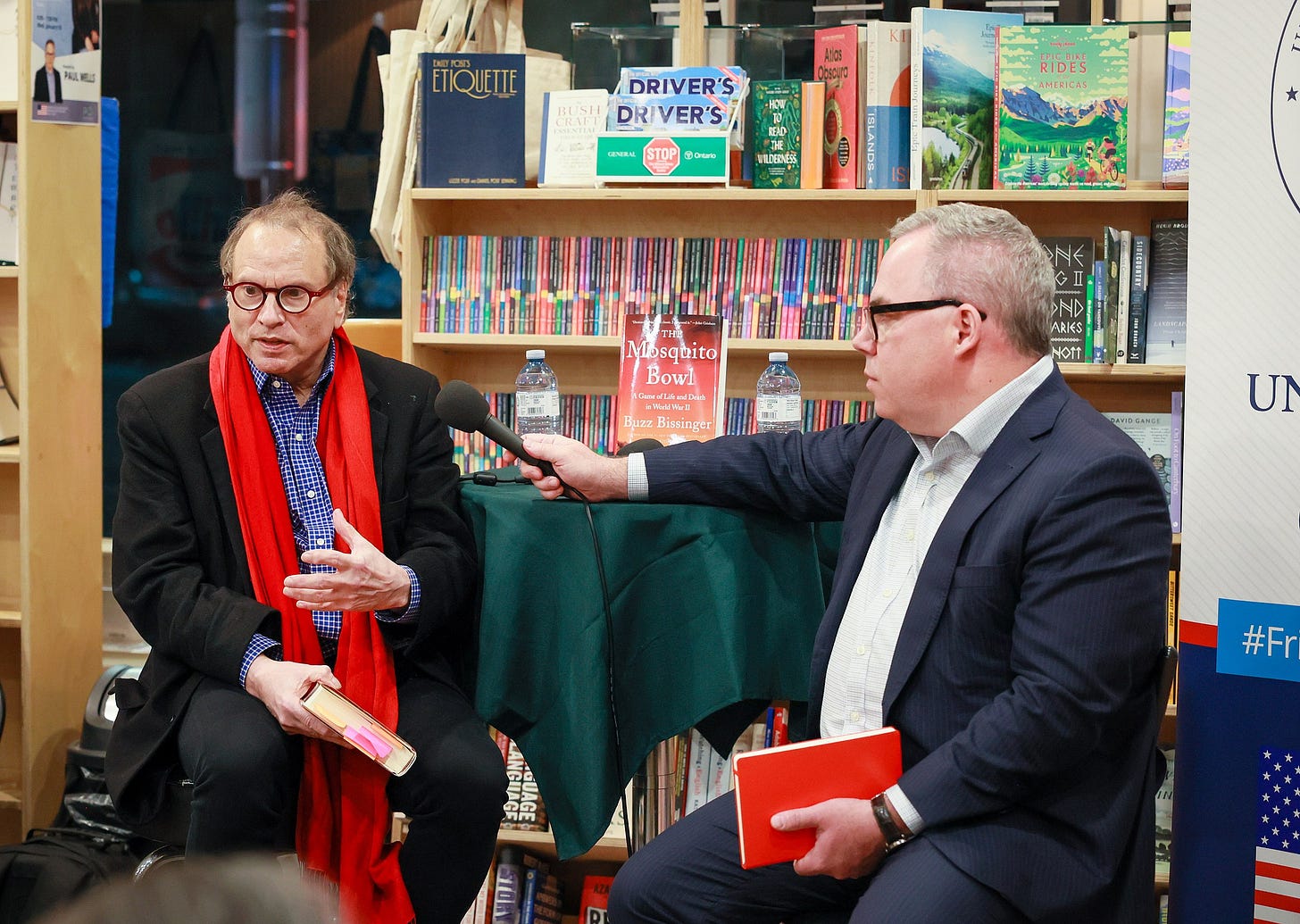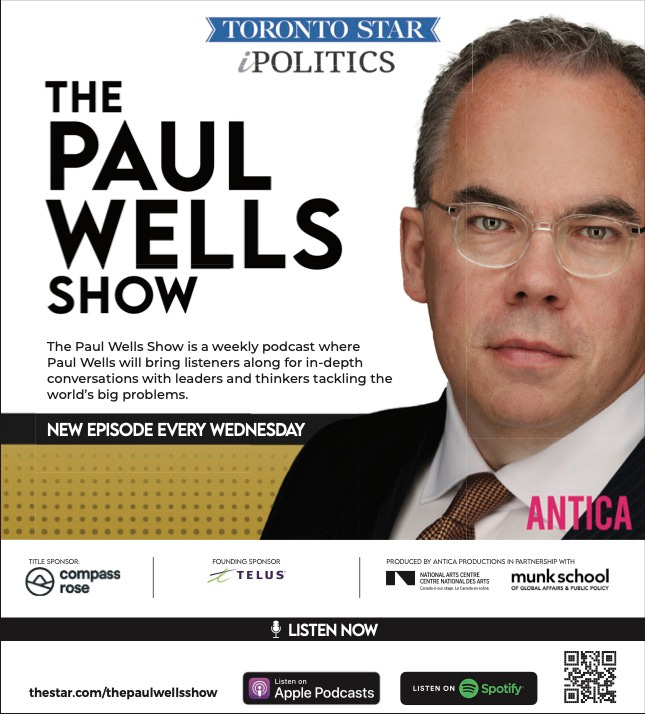He speaks in your voice, American
On the podcast, author Buzz Bissinger on death and redemption

Hi gang. I’m going to post later today on Prime Minister Trudeau’s meeting with the premiers (general theme: What the hell was that?). But in the meantime…
We’re in the middle of a great run on The Paul Wells Show. Recent interviews with Bill Morneau and Margaret MacMillan have reached some of the biggest audiences yet for my podcast. I’m going to keep bringing you interviews with big newsmakers, but now I’m especially pleased to bring you a conversation with a writer you may not know.
Buzz Bissinger has been knocking around the more exalted precincts of the American storyverse since the 1980s. He became famous for Friday Night Lights, about high-school football as the state religion of Texas, which became a good movie and a better TV show. Like all great non-fiction, it began with a feat of noticing: where do dreams and hope converge in a place where nothing much ever seems to happen? His book Prayer for the City is about how a frat-boy mayor and his egghead sidekick improved Philadelphia’s flagging fortunes in the 1990s. It’s a formidable piece of long-form urban journalism. The sidekick was David L. Cohen, who became the U.S. ambassador to Ottawa, as you’ll recall. And then Bissinger wrote the 11,000-word Vanity Fair cover story on Caitlyn Jenner, and he co-wrote Jenner’s book. The story of how all that happened, mixed with Bissinger’s own then-uncontrollable shopping habit (“I see a pair of tight equestrian-style pants that will go well with the jacket. Done”), became the basis for an HBO documentary about Bissinger that probably isn’t like whatever you watched last night.
So now he’s got this new book, The Mosquito Bowl. It turns out that in the Second World War, a lot of fantastic college and professional football players figured that if they had to fight, they’d rather be Marines. So on Guadalcanal at the end of 1944, members of the 4th and 29th Marine regiments looked around and said, Holy cow, we could field a couple of great football teams here. So they did. On Christmas Eve, 1944, a single game, on as close to a league-standard field as they could build on an island in the South Pacific, with news of each play broadcast on radio across the Pacific theatre.
And then they all shipped off to Okinawa to push the Japanese Army off another outpost in what became the war’s penultimate slaughterhouse, and by the time the fighting was done a quarter of the boys who had played in the Mosquito Bowl were dead.
So that’s Bissinger’s latest story. One of the many themes of my work these days is the craft of journalism itself, for which I continue to harbour an unfashionable love. I agreed to interview Bissinger because David Cohen’s team at the U.S. Embassy asked me to, but I could easily have left our chat hanging in the air at Perfect Books. Instead I’m bringing it to you because by the time it happened, I had come to realize what an honour it was to get a glimpse of how this guy ticks.
The headline for today’s post, by the way, is the opening line of Don DeLillo’s novel Underworld: “He speaks in your voice, American, and there’s a shine in his eye that’s halfway hopeful.” It seemed to fit.
Here’s my interview with Buzz Bissinger on Apple Podcasts:
Here’s where to find it on other platforms.
Here’s who helped.
The Founding Sponsor of The Paul Wells Show is Telus. Our Title Sponsor is Compass Rose. These companies could do anything with their money but they choose to use some of it to enrich our national conversation, for which I am always grateful.
Our Ottawa partner is the National Arts Centre. In Toronto, I’m the inaugural Journalist Fellow-in-Residence at the University of Toronto’s Munk School of Global Affairs and Public Policy. Antica Productions handles production for the podcast. The Toronto Star and iPolitics distribute and promote The Paul Wells Show. The U.S. Embassy helped a lot with logistics for the Bissinger interview. As a kid from Sarnia, I grew up thinking of Americans as neighbours and friends, and it was a great pleasure to meet many people who work at the embassy.
This week’s conversation took place at Perfect Books on Elgin St. in Ottawa. When Bissinger arrived, he looked around and said, “This is a serious bookstore.” It sure is.
If you like the podcast, bring the full weight of your finger down upon the Subscribe button. And tell your friend who’s scared of podcasts that there’s nothing to fear and much to gain.





Four of my great-uncles were on Guadalcanal. Not sure if any of them were still there in 1944. (One in the Marines, one in the Seabees, another in the Navy, and one in the Army.) After the death of the Sullivan Brothers, they got a big write-up in Stars and Stripes.
At the end of the podcast, you said that Trump stayed just long enough to give himself something to complain about. To be fair, Trudeau insulted him (quite clearly), so I don't think it's fair to say Trump was looking for trouble. Our PM took the opportunity to make a virtue-signalling snide remark after he thought Trump was out of earshot and got called on it. Like Trump or hate him, fair is fair. I also found the "I'm leaving America if 'X' is elected" by the author to be distasteful. Who does he think he is, a Baldwin?